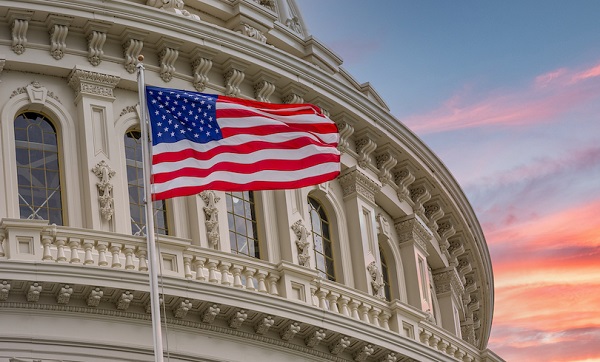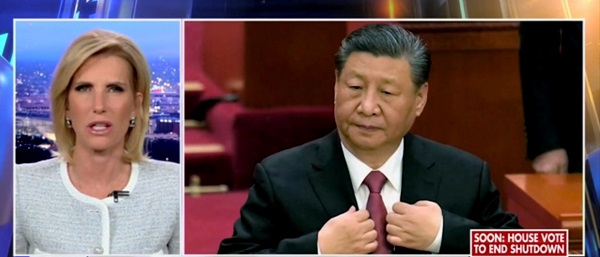International
BREAKING: Republicans retake Senate with at least 51-seat majority

From LifeSiteNews
By retaking the Senate with at least 51 seats, Republicans have ensured that whatever else happens in the 2024 elections, conservatives’ worst fears about the Democratic legislative agenda will not come to pass.
Republicans retook the U.S. Senate Senate in Tuesday’s elections with at least 51 seats, multiple outlets have called, although the full extent of their new margin is not yet certain.
Both the Associated Press and Decision Desk HQ report that the GOP has gained two seats over their current majority, with West Virginia Gov. Jim Justice winning the seat vacated by retiring Democrat-turned-independent Joe Manchin, and challenger Bernie Moreno ousting incumbent Democrat Sherrod Brown in Ohio.
Other highlights so far include Texas Sen. Ted Cruz successfully fending off challenger Colin Allred in a 10-point victory, and Florida incumbent Rick Scott handily keeping his seat. On the flip side, Democrat Angela Alsobrooks defeated liberal Republican Larry Hogan in Maryland, and Democrat Ruben Gallego continues to lead Republican Kari Lake in Arizona. In Wisconsin, another seat the GOP has hoped to flip, challenger Eric Hovde is currently leading incumbent Tammy Baldwin, but the race is currently still too close to call.
“As a new Republican Senate majority, our focus will be to take on an agenda that reflects America’s priorities – lower prices, less spending, secure borders, and American energy dominance,” Senate Republican Conference Chair John Barrasso of Wyoming said, the Washington Examiner reports. “That is what we will set out to do on Day One. Our new Republican Senators will be instrumental in the success of this agenda. Senate Republicans are focused on getting this country back on track.”
A Republican Senate guarantees that, if former President Donald Trump returns to the presidency, he will have a much easier time confirming judicial nominees and executive appointees, whereas if Vice President Kamala Harris defeats him instead, most of the far-left agenda items she campaigned on would not be able to reach her desk.
Decision Desk is currently projecting Democrats to narrowly retake the House of Representatives 219-216, though most major outlets haven’t called control of the House.
LifeSiteNews’s current electoral map places Trump at 230 electoral votes and Harris at 210, but while multiple outlets are expecting a Trump victory, no official winner has been called.
Education
Johns Hopkins University Announces Free Tuition For Most Students


From the Daily Caller News Foundation
Johns Hopkins University (JHU) announced on Thursday it is making tuition free for families earning less than $200,000 and will waive both tuition and living expenses for those making less than $100,000.
The university stated that “a majority of American families” will qualify for the fee exemption, allowing most students to attend without contributing a single dollar. The decision is meant to help recruit “the best and brightest students to Johns Hopkins irrespective of their financial wherewithal.”
“Trying to understand financial aid offers can be overwhelming,” David Phillips, vice provost for admissions and financial aid at JHU, said in the announcement. “A big goal here is to simplify the process. We especially want to reach students and families from disadvantaged backgrounds, rural locations, and small towns across America who may not know that a Hopkins degree is within reach.”
Dear Readers:
As a nonprofit, we are dependent on the generosity of our readers.
Please consider making a small donation of any amount here.
Thank you!
In 2018, Michael Bloomberg donated nearly $2 billion to the university, the largest ever single gift to a U.S. university. JHU said it used this money “to become permanently need blind and no-loan in financial aid.”
The university also receives the most federal funding of any university, raking in more than $3 billion from the government in fiscal year 2023 for research and development alone. This is more than double what the next highest recipient of federal funding that year, the University of Washington, received.
Despite this, JHU in June complained that federal funding cuts forced it to institute a hiring freeze and pause annual pay increases for employees. In its message to the community at the time, the university also mentioned its disagreement with “recent efforts to limit or withhold visas from the international students and scholars.”
Some universities admit mass numbers of foreign students in order to pad their pockets, as such students often pay full tuition and fee costs without financial assistance.
Censorship Industrial Complex
EU’s “Democracy Shield” Centralizes Control Over Online Speech

Presented as a defense of democracy, the plan reads more like the architecture of a managed reality.
|
European authorities have finally unveiled the “European Democracy Shield,” we’ve been warning about for some time, a major initiative that consolidates and broadens existing programs of the European Commission to monitor and restrict digital information flows.
Though branded as a safeguard against “foreign information manipulation and interference (FIMI)” and “disinformation,” the initiative effectively gives EU institutions unprecedented authority over the online public sphere.
At its core, the framework fuses a variety of mechanisms into a single structure, from AI-driven content detection and regulation of social media influencers to a state-endorsed web of “fact-checkers.”
The presentation speaks of defending democracy, yet the design reveals a machinery oriented toward centralized control of speech, identity, and data.
One of the more alarming integrations links the EU’s Digital Identity program with content filtering and labelling systems.
The Commission has announced plans to “explore possible further measures with the Code’s signatories,” including “detection and labelling of AI-generated and manipulated content circulating on social media services” and “voluntary user-verification tools.”
Officials describe the EU Digital Identity (EUDI) Wallet as a means for “secure identification and authentication.”
In real terms, tying verified identity to online activity risks normalizing surveillance and making anonymity in expression a thing of the past.
The Democracy Shield also includes the creation of a “European Centre for Democratic Resilience,” led by Justice Commissioner Michael McGrath.
Framed as a voluntary coordination hub, its mission is “building capacities to withstand foreign information manipulation and interference (FIMI) and disinformation,” involving EU institutions, Member States, and “neighboring countries and like-minded partners.”
The Centre’s “Stakeholder Platform” is to unite “trusted stakeholders such as civil society organizations, researchers and academia, fact-checkers and media providers.”
In practice, this structure ties policymaking, activism, and media oversight into one cooperative network, eroding the boundaries between government power and public discourse.
Financial incentives reinforce the system. A “European Network of Fact-Checkers” will be funded through EU channels, positioned as independent yet operating within the same institutional framework that sets the rules.
The network will coordinate “fact-checking” in every EU language, maintain a central database of verdicts, and introduce “a protection scheme for fact-checkers in the EU against threats and harassment.”
Such an arrangement destroys the line between independent verification and state-aligned narrative enforcement.
The Commission will also fund a “common research support framework,” giving select researchers privileged access to non-public platform data via the
Digital Services Act (DSA) and Political Advertising Regulation.
Officially, this aims to aid academic research, but it could also allow state-linked analysts to map, classify, and suppress online viewpoints deemed undesirable.
Plans extend further into media law. The European Commission intends to revisit the Audiovisual Media Services Directive (AVMSD) to ensure “viewers – particularly younger ones – are adequately protected when they consume audiovisual content online.”
While framed around youth protection, such language opens the door to broad filtering and regulation of online media.
Another initiative seeks to enlist digital personalities through a “voluntary network of influencers to raise awareness about relevant EU rules, including the DSA.” Brussels will “consider the role of influencers” during its upcoming AVMSD review.
Though presented as transparent outreach, the move effectively turns social media figures into de facto promoters of official EU messaging, reshaping public conversation under the guise of awareness.
The Shield also introduces a “Digital Services Act incidents and crisis protocol” between the EU and signatories of the Code of Practice on Disinformation to “facilitate coordination among relevant authorities and ensure swift reactions to large-scale and potentially transnational information operations.”
This could enable coordinated suppression of narratives across borders. Large platforms exceeding 45 million EU users face compliance audits, with penalties reaching 6% of global revenue or even platform bans, making voluntary cooperation more symbolic than real.
A further layer comes with the forthcoming “Blueprint for countering FIMI and disinformation,” offering governments standardized guidance to “anticipate, detect and respond” to perceived information threats. Such protocols risk transforming free expression into a regulated domain managed under preemptive suspicion.
Existing structures are being fortified, too. The European Digital Media Observatory (EDMO), already central to “disinformation” monitoring, will receive expanded authority for election and crisis surveillance. This effectively deepens the fusion of state oversight and online communication control.
Funding through the “Media Resilience Programme” will channel EU resources to preferred outlets, while regulators examine ways to “strengthen the prominence of media services of general interest.”
This includes “impact investments in the news media sector” and efforts to build transnational platforms promoting mainstream narratives. Though described as supporting “independent and local journalism,” the model risks reinforcing state-aligned voices while sidelining dissenting ones.
Education and culture are not exempt. The Commission plans “Guidelines for teachers and educators on tackling disinformation and promoting digital literacy through education and training,” along with new “media literacy” programs and an “independent network for media literacy.”
While such initiatives appear benign, they often operate on the assumption that government-approved information is inherently trustworthy, conditioning future generations to equate official consensus with truth.
Viewed as a whole, the European Democracy Shield represents a major institutional step toward centralized narrative management in the European Union.
Under the language of “protection,” Brussels is constructing a comprehensive apparatus for monitoring and shaping the flow of information.
For a continent that once defined itself through open debate and free thought, this growing web of bureaucratic control signals a troubling shift.
Efforts framed as defense against disinformation now risk becoming tools for suppressing dissent, a paradox that may leave European democracy less free in the name of making it “safe.”
|
|
|
|
You read Reclaim The Net because you believe in something deeper than headlines; you believe in the enduring values of free speech, individual liberty, and the right to privacy.
Every issue we publish is part of a larger fight: preserving the principles that built this country and protecting them from erosion in the digital age.
With your help, we can do more than simply hold the line: we can push back. We can shine a light on censorship, expose growing surveillance overreach, and give a voice to those being silenced.
If you’ve found any value in our work, please consider becoming a supporter.
Your support helps us expand our reach, educate more people, and continue this work.
Please become a supporter today.
Thank you for your support.
|
-

 Frontier Centre for Public Policy2 days ago
Frontier Centre for Public Policy2 days agoRichmond Mayor Warns Property Owners That The Cowichan Case Puts Their Titles At Risk
-

 Business2 days ago
Business2 days agoMark Carney Seeks to Replace Fiscal Watchdog with Loyal Lapdog
-

 Business2 days ago
Business2 days agoSluggish homebuilding will have far-reaching effects on Canada’s economy
-

 COVID-191 day ago
COVID-191 day agoMajor new studies link COVID shots to kidney disease, respiratory problems
-

 Business1 day ago
Business1 day agoP.E.I. Moves to Open IRAC Files, Forcing Land Regulator to Publish Reports After The Bureau’s Investigation
-

 Daily Caller2 days ago
Daily Caller2 days agoLaura Ingraham’s Viral Clash With Trump Prompts Her To Tell Real Reasons China Sends Students To US
-

 Energy1 day ago
Energy1 day agoCanada’s oilpatch shows strength amid global oil shakeup
-

 International1 day ago
International1 day agoBondi and Patel deliver explosive “Clinton Corruption Files” to Congress








